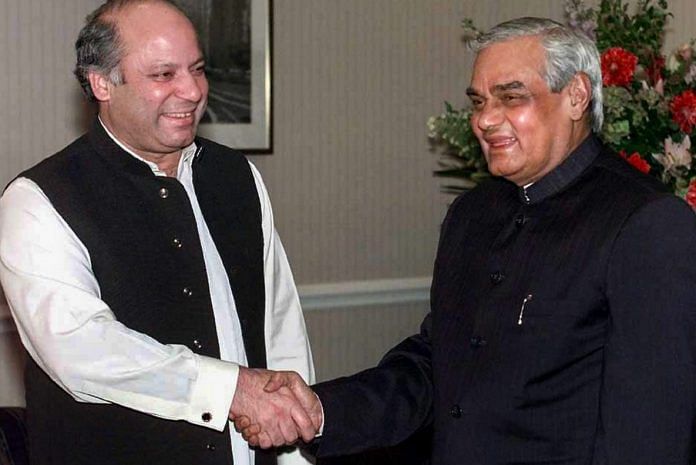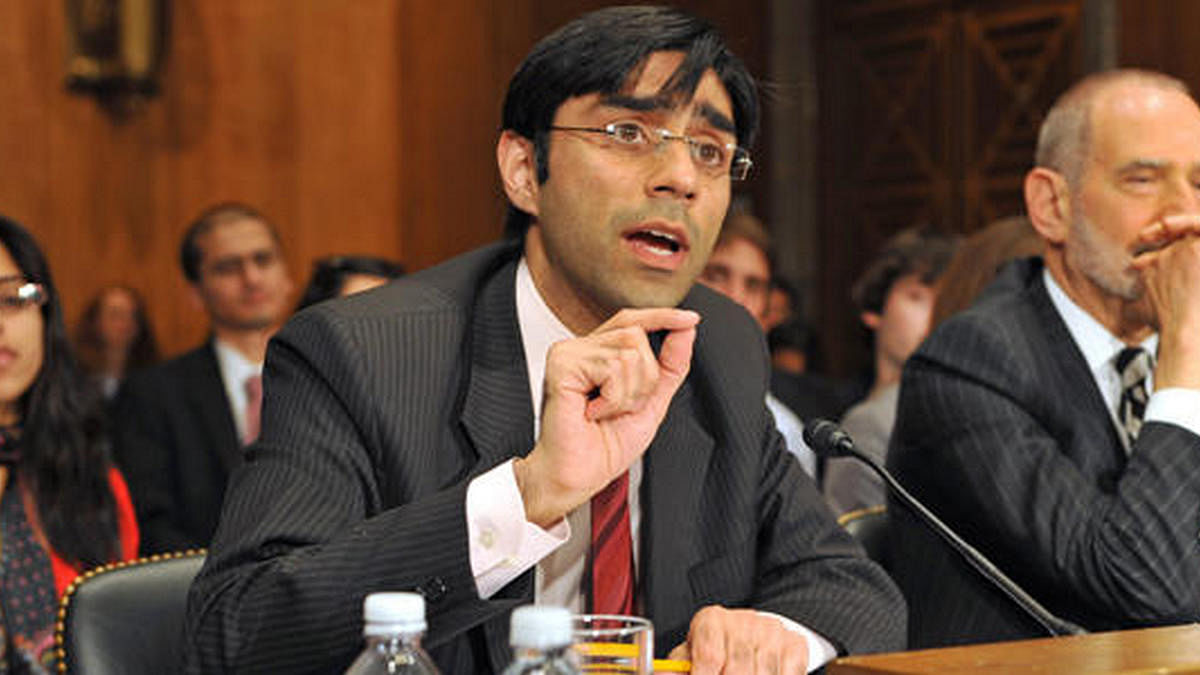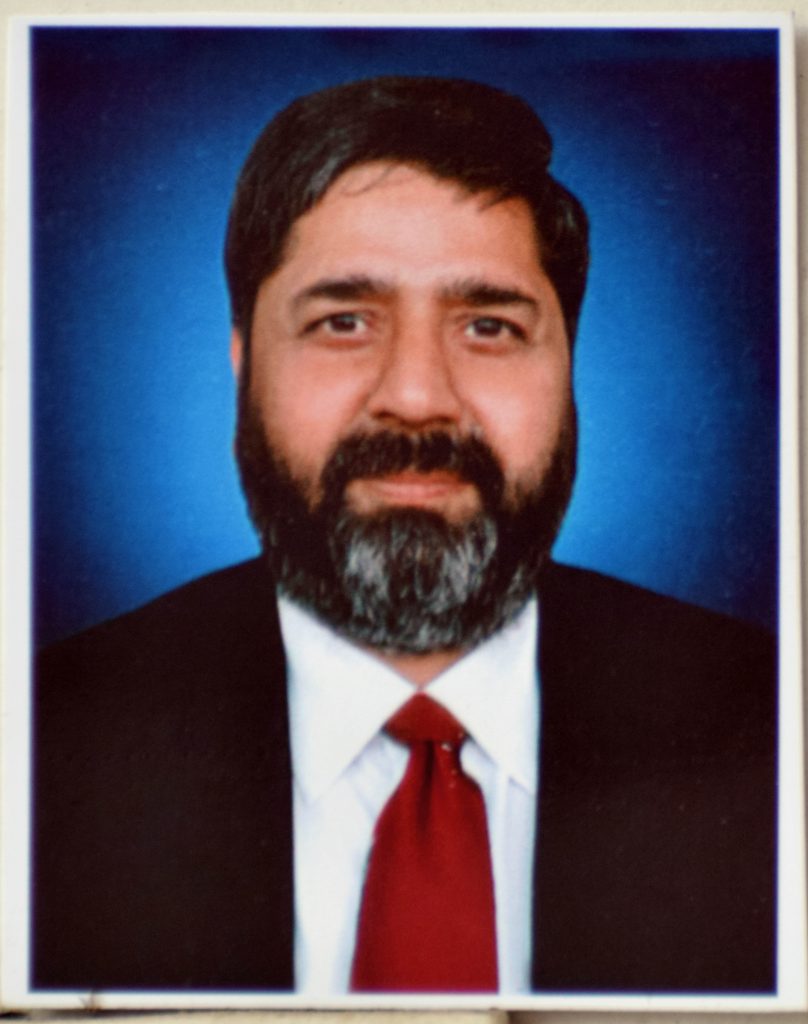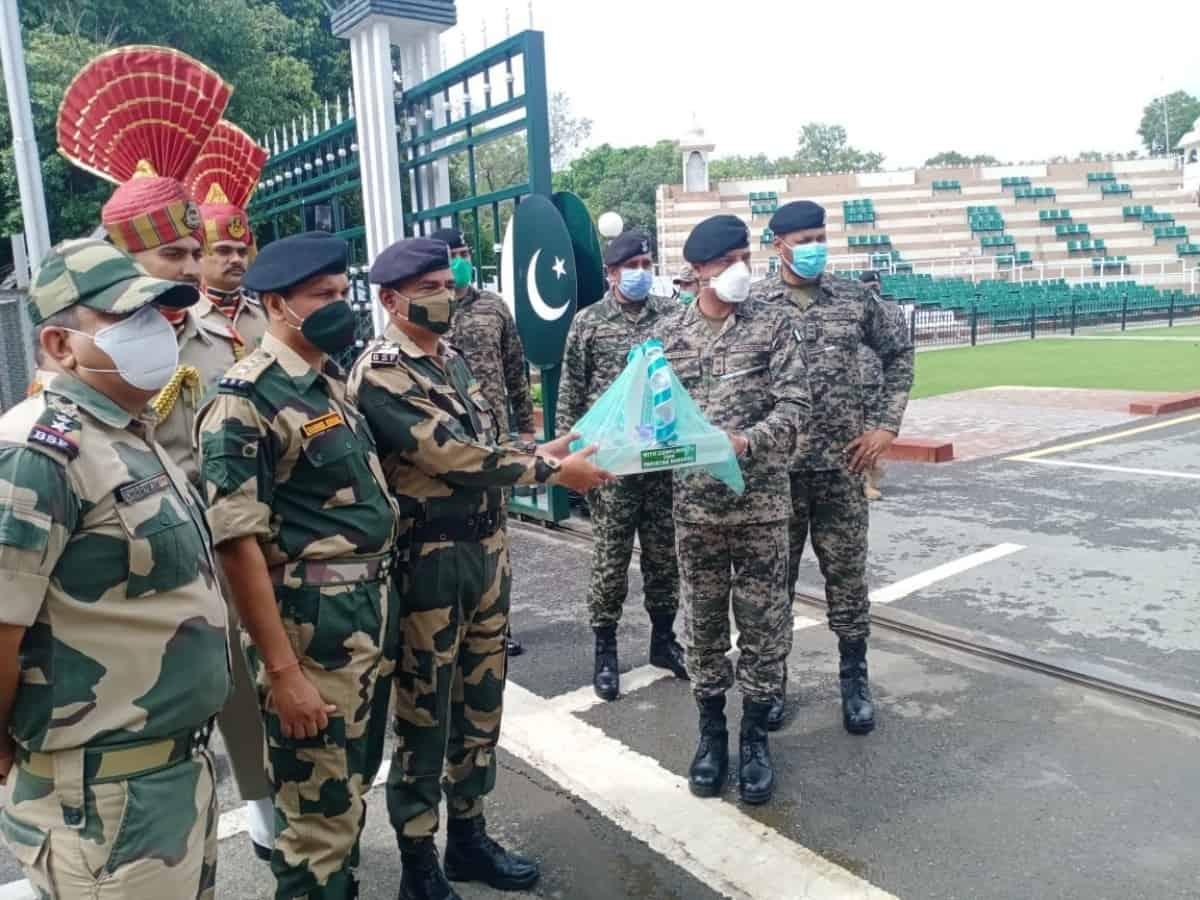The picture of Indian and Pakistani soldiers exchanging sweets on Wednesday for the occasion of Eid-ul-Adha at the Line of Control (LoC) sent two messages very clearly. One signaled the mutual desire for peace among the armies at the de-facto border that divides Jammu and Kashmir (J&K) between the two countries. The other amounted to rebuking hawks who are opposed to dialogue between Delhi and Islamabad. This offers a glimmer of hope that the frozen talks amongst the two neighbouring countries might resume if hawkish actors withdraw from their stated positions.
This exchange of sweets also holds extra significance because the two-way gesture was shown less than a month after Pakistan’s National Security Adviser (NSA) Moeed Yusuf declared the end of backchannel parleys that resulted in the reiteration of the ceasefire. On February 25 this year, both countries agreed to ‘strictly’ observe the LoC ceasefire after 18 years.
The original ceasefire agreement was scripted on November 26, 2003 within months of the historic speech of the then Prime Minister Atal Behari Vajpayee in Srinagar on April 26, 2003. The richness of this speech was in the “extension of a hand of friendship to Pakistan” after a border standoff — subsequent to the terror assault on the Indian Parliament on December 13, 2001 — that lasted more than a year.

Within 40 days of the ceasefire agreement in 2003, India and Pakistan had issued a joint statement in Islamabad on January 6, 2004. The two countries had agreed to “commence the process of the composite dialogue in February 2004.” The objective of the dialogue was to seek ways to lead the “peaceful settlement of all the bilateral issues, including Jammu and Kashmir, to the satisfaction of both sides.”
Though after the February 25, 2021 ceasefire joint statement issued by the Indian and Pakistani Director Generals of Military Operations, Yusuf stated on July 4 that the back-channel talks, were “over.”
His premise was that India had not taken any steps to reverse the decisions made on August 5, 2019 vis-à-vis the state of J&K. The Government of India scrapped the special status of J&K under Article 370 and exclusive rights of its permanent residents to land and jobs under Article 35A. The erstwhile state also got bifurcated into two centrally administered union territories of Ladakh and J&K.
Pakistan is insisting on the reversal of these decisions for resumption of dialogue.
“Since they [the Indian government] haven’t done anything [favourable] in this regard, so it’s over now,” Yusuf asserted to a private TV Channel. The excerpts of this statement were reported by the Pakistani newspaper Express Tribune. The NSA has since then gone hammer and tongs against India by accusing it of fomenting terrorism in Pakistan. The atmosphere has been vitiated further in the run-up to the Pakistan-Occupied Jammu and Kashmir (POJK) assembly polls set to take place on July 25. All parties are targeting India as campaign rhetoric has been centered around the Indian government’s decision to scrap Article 370.

Hence, Pakistan deliberately muddled the waters on dialogue because of its political compulsions within the country — especially with parties competing as to who is more hawkish on India regarding Kashmir.
Plus, Prime Minister Imran Khan’s Pakistan Tehreek Insaaf (PTI) party is facing tough times due to charismatic rival Maryam Nawaz, Vice President of the Pakistan Muslim League—N (Nawaz Sharif). On top of that Khan has been attacked by opponents for “not doing enough for the people of Kashmir.”
In Pakistan, the Kashmiris living on this side of the LoC are projected as an “oppressed and suppressed lot.” Such a contrived narrative has been utilized to befool the international community. This is not unrelated to Pakistan’s own embarrassing position because of its violent interference in Afghanistan. Afghan leaders have openly accused Pakistan of helping the Taliban by sending “jihadis” and aerial support to anti-Afghan forces who seek to capture more territory. And as Pakistan is banking on the unqualified support of China for all of its efforts in the region, Islamabad is finding itself in a space where it could pose as a key player on the geo-strategic terrain of South Asia.

Some former Pakistani diplomats have spoken about the prevalence of an impression that “their country has abandoned the Kashmir cause.” Therefore, they advised that talks not be carried on with India. Almost demonizing the dialogue and the ceasefire agreement, former diplomat Touqir Hussain wrote in Dawn, a leading newspaper of the country, “If Pakistan wants to attract the international community’s interest, it should avoid making relations look normal by a dialogue to nowhere.”
This is a prejudiced view.
With such an outlook, Pakistani leaders and intellectuals harbour pre-conceived notions about dialogue with India. Worse, they are helping obstruct peace-building discussions so that things don’t move beyond the February 25 ceasefire. This can be viewed as contempt towards the ceasefire along the LoC. Nonetheless, the fact remains that the silencing of guns on the de-facto border has brought back a huge sense of relief to those residing on both sides of the LoC. Prior to the reiteration of the ceasefire and its implementation, they were afraid of staying in their homes.
Now they are living normal lives.
Despite the aforementioned anti-dialogue move by Pakistan, the exchange of sweets between soldiers is a veiled hint that things may change after the POJK elections scheduled on July 25. Demonization of talks can imperil hope of peace in the region. However, the Pakistani army’s participation in the exchange of gifts on Eid shows that a window of opportunity exists. That too, even if it appears to be a very narrow opening.

Arun Joshi is a Senior Journalist, Political Analyst based in Jammu and Kashmir. He writes on strategic affairs of South Asia with a special reference to India and Pakistan. He has authored four books, including, “Eyewitness Kashmir: Teetering on Nuclear War” He is a Ph.D in English literature. His thesis was “Fictional Styles of George Orwell” which was later published in book form. He has worked with Hindustan Times, Times of India, Indian Express and The Tribune, and visited several countries to deliver lecture on Kashmir issue and international affairs.

